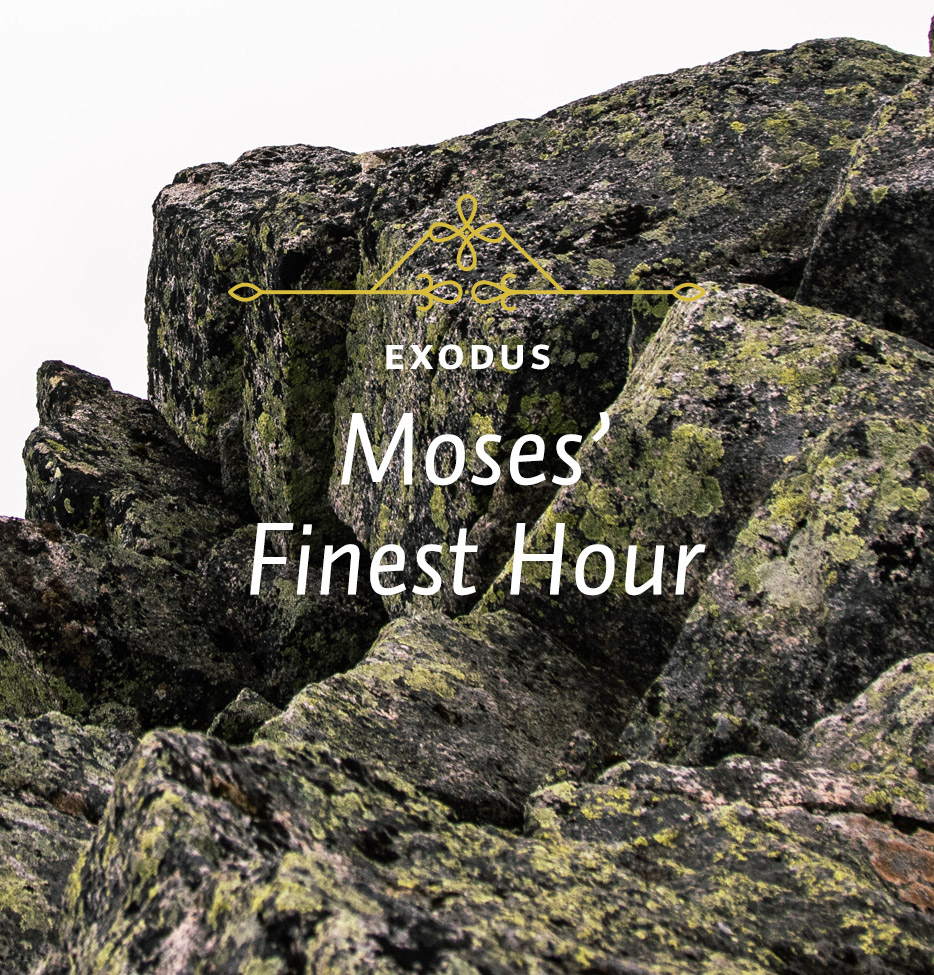The second lesson from the story tells us of the problem with images. God had just given Moses the Ten Commandments, and one of the things we learn from them is this: “You shall not make for yourself an idol in the image of anything in heaven above, or on the earth beneath, or in the waters under the earth. You shall not bow down yourself to them or serve them.” It goes on to explain how the punishments of God will come upon those who do, even to the third and fourth generations.
We read that and say, “Well, what’s so important about that command, ‘You shall not make an image’?” We can understand God saying, “You shall not have any other gods before me.” But after all, why can’t we worship the true God by means of images? That’s certainly what Aaron thought he was doing. After the idol was made and they had an altar in front of it, he said, “Tomorrow we are going to have a festival to the LORD.” He thought he was going to worship Jehovah. Probably he thought this bull god represented the great strength of the true God. But of course it couldn’t even begin to represent the strength of the true God, the God that brought them out of Egypt. It even misled the worshipers, because instead of thinking of the strength of the god in a sense of deliverance, they began to think of it in terms of sexual potency. And so it lead into the orgy that followed and was certainly a disgrace upon their name.
The third point is that sin establishes a hold on the one who is sinning. It is hard to shake off its power. We have another illustration of this from the time of King Jeroboam of Israel. Jeroboam was the first ruler of the northern kingdom after the civil war that split Judah and Benjamin in the south from the other ten northern tribes. He was afraid after the split of the kingdom that, because Jerusalem was in the south, those of the northern kingdom over which he ruled would feel loyalty for the south because of Jerusalem and its worship center. So he set up two rival worship centers, one at Bethel in the south of his kingdom and one at Dan in the north, so you could go to either one. At each of them he set up a golden calf. What Jeroboam said to the people is a direct reference back to Exodus 32 and Aaron’s golden calf: “Here are your gods, O Israel, who brought you up out of Egypt” (1 Kings 12:28). Incredibly, that same sin was hanging on among the people many generations later.
Moses was up on the mountain while all of this was going on in the valley. And of course he didn’t know what was going on. But God did. God is omniscient and omnipresent. He was well aware of what was going on. So God interrupted the giving of the law to tell Moses what was happening. God then said to Moses, “Go down, because your people whom you brought up out of Egypt have become corrupt. They have been quick to turn away from what I commanded them, and have made themselves an idol cast in the shape of a calf. They bowed down to it and sacrificed to it. And they have said, ‘These are your gods, O Israel, who brought you up out of Egypt’” (Ex. 32:7-8).
This was a painfully ironic situation. God had been giving Moses the law and telling them that they were not to worship Him by means of idols. Yet, in the very moment that God was doing that, the people were breaking that commandment down in the valley.
The Lord made an offer to Moses at this point that would have been a great temptation to a lesser man. God told Moses that He would judge them for their sin by wiping them out, and that he would then make Moses into a great nation (v. 10). Moses would become a new Abraham, that is, another patriarch and father of God’s people.
This was undoubtedly meant to test Moses, because God knew perfectly well what He was going to do. God knows the end from the beginning. All of this was meant to draw Moses more into his work of intercession for the people. But this offer was not a temptation to Moses. What Moses did instead was intercede for the people. Moses asked the Lord, “Why should your anger burn against your people whom you brought out of Egypt?”
The second great irony is in this exchange between God and Moses. When God first spoke to Moses, God said to him, “Go down, because your people, whom you brought up out of Egypt, have become corrupt” (v. 7). And now when Moses begins to respond to God, he says, “Why should your anger burn against your people, whom you brought out of Egypt with great power and a mighty hand?” (v. 11). You see, in their present disobedient state neither God nor Moses wanted to acknowledge them. It’s a little bit like the situation when a child is misbehaving, and the father says to the mother, “I think you better discipline your son.” She says, “What do you mean? He’s not only my son, he’s your son! He takes after you. You discipline him.” At that moment, neither parent wants anything to do with the disobedient son.






